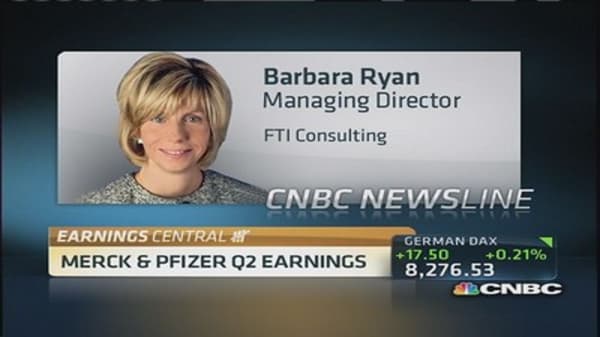As corporate earnings season passes the halfway point, results have been good enough but not particularly good, signaling that a hoped-for strong surge in the second half could be elusive.
In fact, were it not for a robust financial sector, profit on the S&P 500 would be tracking negative 1.6 percent, according to Bank of America Merrill Lynch consensus estimates.
That two-thirds of companies are beating estimates seems almost beside the point: The Wall Street view had gotten so low ahead of the reporting season that anything fogging the mirror would have been an upside surprise.
(Read more: What you need to know about earnings (so far))
Instead, investors have been left to sort through the numbers to find companies that stand out.
"The trajectory of estimates had been sharply negative leading into the reporting season, enabling companies to beat a lowered bar," Adam Parker, chief market strategist at Morgan Stanley, said in an earnings analysis. "Nevertheless, fundamentals appear to be in focus as the market is differentiating between companies, with misses being punished and beats being rewarded."






